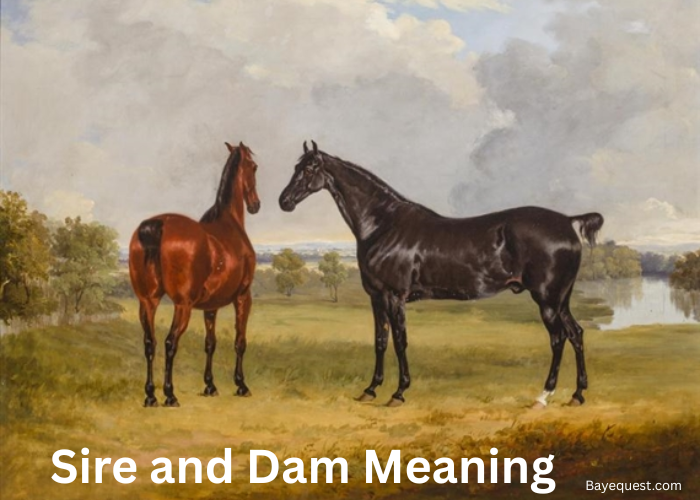The Kentucky Derby winner races past the finish line, carrying more than just glory—there’s big money at stake. Jockeys may be small in size, but their earnings pack a hefty punch.
From massive prize purses to lucrative sponsorship deals, their financial journey is anything but ordinary.
Curious how much these riders make? Get ready to explore the fascinating world of jockeys’ earnings, where fortunes are won and lost with every gallop.
It’s more than just a sport—it’s a high-stakes livelihood.
How Much Do Jockeys Make? Key Takeaway
Entry-level jockeys might earn about $30,000 annually, with income from small race winnings and retainer fees. Mid-level jockeys can make between $50,000 and $100,000 per year, benefiting from higher race prizes, more retainers, and bonuses. Average earnings are $25.31 per hour, varying by location, education, and experience.
Job Description of Jockeys
A jockey is a professional athlete who rides horses in races. They ensure optimal performance and safety for both horse and rider.
Jockeys compete in races, guiding the horse to the finish line. They train horses, preparing them for races.
Jockeys work with trainers and owners to plan race strategies. They consider the horse’s strengths, track conditions, and competition.
Jockeys maintain strict diet and exercise regimes to meet weight requirements. They assist in grooming, feeding, and caring for horses.
On race days, they weigh in, discuss tactics with the trainer, and warm up the horse. Jockeys follow safety guidelines to protect themselves and the horse.
They need experience riding horses, strong riding skills, quick reflexes, good judgment, and strategic thinking. Understanding horse behavior and training techniques is essential.
Jockeys must have a license from racing authorities. They work outdoors in all weather conditions, at race tracks and training facilities.
Their hours are irregular, including early mornings, weekends, and holidays.
Jockeys travel frequently to different race tracks and events. Earnings vary based on race winnings, retainers, bonuses, and sponsorships.
Income ranges from modest for beginners to substantial for top professionals. Career paths include becoming a leading jockey, a trainer, or a racing commentator.
The job demands dedication, resilience, and a passion for horse racing. Jockeys bring excitement and skill to every competition.
Read also: Do Horses Like to be Ridden?
Education Requirements of Jockeys
Jockeys do not need formal education to enter the profession, but basic literacy and numeracy skills are beneficial. Instead, aspiring jockeys focus on specialized training and practical experience.
Many attend jockey schools or apprenticeship programs where they learn horse handling, riding techniques, and racing strategies.
Hands-on experience is crucial, often gained through internships with trainers or stables.
To become a licensed jockey, you must complete mandatory riding assessments and pass both written and practical exams.
Maintaining a jockey license requires adhering to specific regulations and standards.
Physical fitness is essential for jockeys. They must maintain strict weight limits and follow regular exercise and fitness routines to stay in peak condition.
Additionally, jockeys often continue their education by attending workshops and seminars on racing strategies and horse care.
This ensures they stay updated on industry standards and regulations.
While formal education isn’t mandatory, the combination of specialized training, practical experience, and continuous learning is vital for success in this demanding profession.
Related read: Average Jockey Weight and Height.
How Do Jockeys Make Money?
Jockeys make money in several ways.
First, they earn a percentage of the prize money when they win or place in races. The better the race, the bigger the prize. Top races like the Kentucky Derby offer huge rewards.
Second, jockeys get paid by trainers or owners to ride their horses. This is called a retainer fee. It’s like a salary to ensure the jockey is available for their horses.
Third, jockeys can earn bonuses. These come from winning big races or meeting certain performance goals set by the horse’s owner or trainer.
Fourth, sponsorship deals can bring in extra cash. Companies pay jockeys to wear their logos or endorse their products.
Lastly, some jockeys make money from media appearances or by becoming race commentators. They use their expertise to analyze races and share insights with the public.
So, a jockey’s income comes from race winnings, retainer fees, bonuses, sponsorships, and sometimes media work. Each of these adds up to create their overall earnings.
Read also: Top Jobs Working With Horses.
How Much Do Horse Jockeys Get Paid?
Jockeys’ earnings can vary widely.
Entry-level jockeys might make around $30,000 a year. This includes small race winnings and retainer fees.
Mid-level jockeys can earn between $50,000 and $100,000 annually. They get better race prizes, more retainers, and some bonuses.
Top jockeys, the ones who race in big events like the Kentucky Derby, can make hundreds of thousands to millions of dollars a year.
They get huge prize money, big bonuses, and lucrative sponsorship deals.
A jockey’s income isn’t just from racing. Sponsorships, media appearances, and sometimes commentary gigs also add to their earnings.
So, while some jockeys make a modest living, the best in the business can earn a fortune.
Read also: Do Jockeys Need a License to Ride a Horse on the Road?
Jockey Income by States
Here’s a simple table outlining the average annual salaries for jockeys by state. These figures provide a general idea of what jockeys might earn in different states.
However, actual earnings can differ based on specific circumstances and achievements.
| State | Average Annual Salary |
| California | $50,000 – $150,000 |
| Kentucky | $45,000 – $140,000 |
| New York | $55,000 – $160,000 |
| Florida | $40,000 – $130,000 |
| Texas | $35,000 – $120,000 |
| Louisiana | $30,000 – $110,000 |
| Illinois | $35,000 – $115,000 |
| Pennsylvania | $40,000 – $125,000 |
| New Jersey | $45,000 – $135,000 |
| Arkansas | $30,000 – $105,000 |
| Ohio | $35,000 – $110,000 |
| Oklahoma | $30,000 – $100,000 |
| Arizona | $30,000 – $95,000 |
| Maryland | $40,000 – $120,000 |
| Virginia | $35,000 – $115,000 |
| Washington | $35,000 – $110,000 |
Jockey Wages by Education Level
Here’s a table outlining the average annual salaries for jockeys by education level.
Note that a jockey’s earnings are more influenced by their skills, experience, and success in races rather than formal education.
| Education level | Average Annual Salary |
| No formal education | $30,000 – $50,000 |
| High school diploma | $35,000 – $70,000 |
| Specialized training | $40,000 – $90,000 |
| Professional jockeys | $50,000 – $150,000+ |
No formal education. Jockeys with no formal education often start at the lower end of the salary scale. They rely heavily on apprenticeships and hands-on experience.
High school diploma. Having a high school diploma can provide a slight edge, as it may indicate a basic level of literacy and numeracy.
Specialized training. Jockeys who have attended specialized jockey schools or apprenticeship programs generally earn more. This training helps them hone their skills and increase their chances of success in races.
Professional jockeys. These are jockeys who have achieved significant success and recognition in the industry. Their earnings include substantial race winnings, retainers, bonuses, and sponsorship deals.
Types of Races and Impact on Earnings
Horse racing offers a variety of race types, each affecting jockeys’ earnings differently. Let’s explore the main types and their impact on a jockey’s income.
Thoroughbred racing
Thoroughbred racing is the most popular and high-profile type of horse racing. It includes famous events like the Kentucky Derby and Belmont Stakes.
These races offer huge prize money. Top jockeys can earn substantial amounts from winning or placing in these prestigious events. The stakes are high, and so are the rewards.
Harness racing
Harness racing involves horses pulling a two-wheeled cart called a sulky at a specific gait. The prize money in harness racing is generally lower than in thoroughbred racing.
However, successful jockeys of this type can still earn a good income. Frequent participation in races helps increase their overall earnings.
Quarter horse racing
Quarter horse racing focuses on short-distance races, typically a quarter-mile. These races highlight the horse’s speed.
Prize money can be significant but often less than thoroughbred races. Jockeys can compete in more races due to the shorter distances, boosting their total earnings.
Endurance racing
Endurance racing tests the stamina of both horse and rider over long distances, sometimes over 100 miles. Prize money varies widely in endurance racing.
Top events offer substantial rewards. While there are fewer opportunities, winning prestigious races can lead to high earnings for jockeys.
Steeplechase racing
Steeplechase racing involves horses jumping over obstacles like fences and ditches. The prize money can be comparable to thoroughbred racing, especially in events like the Grand National.
The added risk and required skill can lead to higher earnings for successful jockeys.
Flat racing
Flat racing is traditional horse racing on a flat track without obstacles. This type generally offers substantial prize money, especially in top-tier events.
Jockeys can participate in many flat races throughout the year, increasing their earning potential.
Maiden races
Maiden races are for horses that have never won a race. The prize money is lower compared to more advanced races.
These races are essential for jockeys to build their reputation and experience, leading to better opportunities in the future.
Claiming races
In claiming races, horses entered can be purchased by other owners. The prize money is typically moderate.
However, frequent participation provides a steady income. These races are crucial for jockeys building their careers.
Allowance races
Allowance races are a step up from claiming races, featuring better quality horses with no purchasing involved. The prize money is higher than in claiming races.
This provides better earning opportunities for jockeys looking to advance their careers.
Stakes races
Stakes races are high-profile events with significant prize money, often requiring entry fees. They offer some of the highest prize money in the industry.
Winning stakes races can lead to substantial earnings and increased visibility for jockeys.
Factors Influencing Earnings of Jockeys
The earnings of jockeys can vary based on several factors. These factors influence how much a jockey can make throughout their career. They include:
Race winnings
The most direct source of income for jockeys is race winnings. The higher the prize money in a race, the more a jockey can earn.
Top-tier races like the Kentucky Derby offer substantial prize money. Jockeys receive a percentage of the winnings, which can boost their income.
Retainers and salaries
Many jockeys are paid a retainer fee by trainers or horse owners. This is like a salary to ensure the jockey is available to ride their horses.
The amount can vary based on the jockey’s reputation and the financial capacity of the owner or trainer.
Bonuses
Jockeys can earn bonuses for winning major races or achieving specific performance goals. Owners and trainers often offer these incentives to motivate jockeys to perform their best.
Bonuses can add a significant amount to a jockey’s annual income.
Sponsorships and endorsements
Successful jockeys often attract sponsorships from companies. These sponsorships can include wearing branded gear or endorsing products.
Sponsorship deals can provide a substantial additional income stream, especially for top jockeys.
Experience and reputation
A jockey’s experience and reputation in the racing community affect their earnings. Well-known jockeys can command higher fees and attract more lucrative opportunities.
Their established reputation can lead to more race invitations and better horses to ride.
Geographic location
Where a jockey races can also impact their earnings. Racing in regions with higher prize money and more prestigious events can lead to higher income.
For example, jockeys racing in the US, the UK, and Australia often have access to more lucrative opportunities.
Frequency of racing
The more races a jockey participates in, the higher their potential earnings. Jockeys who ride in multiple races per week can accumulate winnings, retainers, and bonuses more quickly.
This frequency also helps them gain experience and improve their reputation.
Highest Earning Jockeys
The world of horse racing has seen some jockeys achieve remarkable earnings, thanks to their exceptional skills and numerous victories. Here are some of the highest-earning jockeys in history:
1. Russell Baze
Russell Baze is one of the most successful jockeys in North America. With over 12,000 career wins, his consistent performance on the track has earned him millions.
Baze has won numerous prestigious awards and has a career earnings total exceeding $199 million.
2. John R. Velazquez
John R. Velazquez, a jockey from Puerto Rico, is well-known for his achievements in major races. He has won the Kentucky Derby twice and the Belmont Stakes twice.
Velazquez’s career earnings are over $450 million, making him one of the top earners in the sport.
3. Mike E. Smith
Mike E. Smith is a legendary jockey known for his success in big-money races. He rode Justify to victory in the 2018 Triple Crown.
Smith’s career earnings surpass $336 million, largely thanks to his wins in the Breeders’ Cup and other high-stakes races.
4. Frankie Dettori
Frankie Dettori is an Italian jockey with a global reputation. He has won numerous major races, including multiple victories in the Prix de l’Arc de Triomphe and the Epsom Derby.
Dettori’s career earnings are over $215 million, making him one of the most successful jockeys in Europe.
5. Javier Castellano
Javier Castellano, from Venezuela, has made a significant impact on the North American racing scene.
He has won the Eclipse Award for Outstanding Jockey multiple times and has career earnings exceeding $374 million. Castellano is known for his skill in both dirt and turf races.
6. Pat Day
Pat Day is a retired American jockey who had an illustrious career with over 8,800 wins. He has won the Kentucky Derby, Preakness Stakes, and Breeders’ Cup Classic, among others.
Day’s career earnings are over $297 million, reflecting his success across various high-profile events.
7. Laffit Pincay Jr.
Laffit Pincay Jr., originally from Panama, is one of the greatest jockeys in horse racing history. With over 9,500 career wins, he held the record for the most wins for many years.
Pincay’s career earnings exceed $237 million, earned through his victories in major races.
Additional Income Sources for Jockeys
Jockeys have several ways to supplement their race earnings. Here are some of the key additional income sources for jockeys:
- Appearance fees
- Sponsorships and endorsements
- Media and commentary roles
- Training and consulting
- Riding lessons
- Licensing and merchandising
- Writing books or autobiographies
- Social media and influencer activities
How Much Does a Horse Jockey Make? Conclusion
Jockeys’ earnings vary widely, influenced by race wins, retainers, bonuses, and sponsorships. Some earn modestly, while top jockeys can make millions.
It’s a career full of highs and lows, with income sources extending beyond the track. Media roles, training, and social media can also boost their earnings.
Despite their small stature, jockeys have immense earning potential. From thrilling races to lucrative side gigs, being a jockey offers a dynamic and rewarding career.
Ready to ride? The finish line is just the start of the journey.








